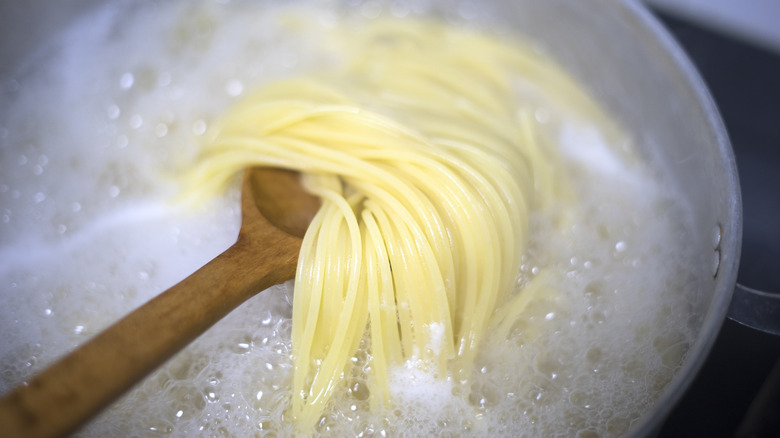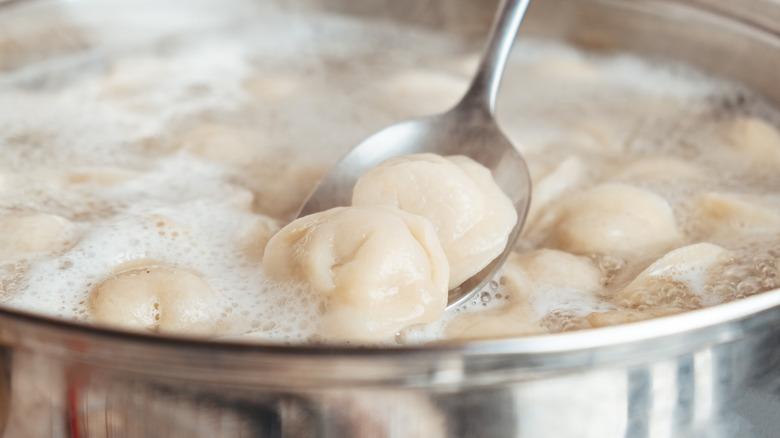Why You Should Always Keep Pasta Water In Your Fridge
There's something so satisfying about a recipe that minimizes food waste. As if there weren't already enough reasons to love pasta, the water that pasta is cooked in can be saved as its own useful ingredient. Often referred to as liquid gold, this starchy water has an incredible ability to elevate your cooking.
When pasta boils, it releases starch into the water. This starch not only thickens sauces but also helps them cling better to the noodles, creating that silky, restaurant-quality texture. That's why pasta water is so different from fresh water. While adding some pasta water to your pasta sauce is a common, easy way to enhance pasta dishes, leftover pasta water can do so much more. So, the next time you drain your pasta, resist the urge to pour that valuable water down the sink. Instead, save it for later use by storing it in your fridge!
Storing pasta water isn't just about saving time, it's about enhancing flavors. Whether you're making a sauce from scratch or simply reheating leftovers, adding a splash of pasta water can bring everything together beautifully. Its starchy consistency is great for binding ingredients and creating creamy emulsions. Plus if you add salt to your pasta water, or even olive oil, the water will impart even more flavor into your dishes.
How to use leftover pasta water in recipes
One of the most practical uses for pasta water is as a base for soups and stews. Whether it's a vegetable minestrone or a hearty chicken noodle, a cup of pasta water can elevate the broth by giving it a thicker, more luxurious consistency. The starch in the water helps emulsify the liquids, resulting in a rich, well-rounded texture.
Pasta water is a cheap secret ingredient for more than just soups and sauces — it can even improve bread! Bread-baking enthusiasts are always looking for a creative new trick, and adding pasta water instead of regular water in dough recipes adds extra hydration and elasticity, helping to create a fluffier, chewier crumb. The starch content gives bread a slight gloss and a more robust texture. Just avoid adding too much salt, since there's already salt in the pasta water. Sourdough enthusiasts, for example, often use leftover pasta water to feed their starters, which can enhance the fermentation process and help bread rise.
Legumes like beans and peas can also be cooked in pasta water. Using pasta water to cook beans makes them extra creamy and full of flavor, thanks to that starchy, salted goodness. For storage, you can put your leftover pasta water in the fridge in an airtight container for up to 3 days. After that, if you're feeling particularly adventurous and want to try something out of the ordinary, you can freeze it in ice cube trays and plop those into whatever dish you'd like to enhance!

